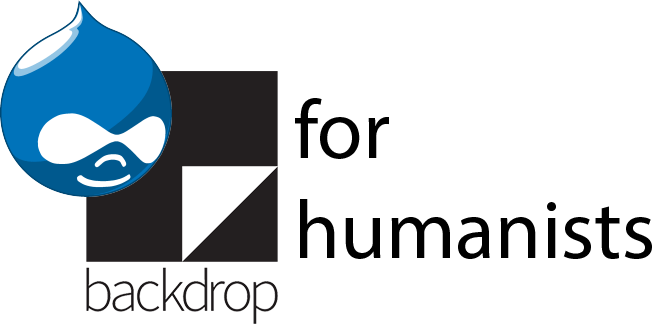Humanities contributions to module development
Digital humanities projects built using Drupal can contribute to the open source ecosystem by funding the development of new modules — or improvements to existing modules — that support humanities use cases.
These new modules, or improved versions of modules that are no longer being actively developed, may not be posted on drupal.org, due to the time it takes to get a module approved there. (People who wish to submit a module to drupal.org have to review the code of other submitted modules before they can submit their own, and module maintainers have to be available to respond to any identified security risks in a timely manner, or the module will be taken down.) As a rule, you should only use modules from drupal.org, unless you know and trust a particular developer or organization that posts their code on Github.
Here’s some examples of digital humanities projects and organizations that have funded the development of modules that other projects can benefit from:
- Bulgarian Dialectology as Living Tradition (BDLT) was originally built in Drupal 6, relying heavily on the Editview module as part of its data entry workflow. There were a few incomplete and non-functional attempts to migrate Editview to Drupal 7, and its lack of availability became the one remaining barrier for BDLT to upgrade to Drupal 7. Professor Ronelle Alexander (UC Berkeley) and her team worked with Dean Irvine and Agile Humanities Agency to completely rewrite Editview for Drupal 7, bringing the haphazard code into alignment with Drupal best practices. The code is available on Github and every year, students at the DHSI Drupal workshop find new uses for it.
- The George Washington Financial Papers (Jennifer Stertzer, University of Virginia) and the Jan Brueghel Catalogue Raisonné (Professor Elizabeth Honig, UC Berkeley) have both funded improvements to the Partial Date module, where development had stalled. Agile Humanities Agency improved the code to enable importing data into Partial Date fields using the Feeds module (described in chapter 14), as well as improving compatibility with the Field Collection module and exposed Views filters. These changes have been submitted to the module maintainer as a patch, but no new release has incorporated them to date. The improved version of Partial Date is available on Github.
Has your digital humanities project or center funded the development of a module you'd like to see listed here? Let us know!
